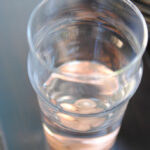Stopping a fly infestation involves eliminating breeding grounds, sealing entry points, and using appropriate control measures. Flyermedia.net understands the nuisance and health hazards flies pose, so we’ve compiled expert tips to help you keep these pests away from your home, similar to how pilots navigate complex flight paths. By implementing these strategies, you can maintain a clean and fly-free environment.
Let’s explore effective methods for pest management, sanitation practices, and preventive measures to ensure your home remains fly-free.
1. What Attracts Flies and How Can I Prevent It?
Flies are attracted to food sources, decaying organic matter, and standing water, creating ideal breeding environments. Prevention focuses on removing these attractants.
Here’s how to address each attractant:
- Food Waste: Flies are drawn to uncovered food and spills. Ensure all food is stored in airtight containers, and promptly clean up spills. According to the EPA, proper waste management significantly reduces fly populations.
- Decaying Organic Matter: Garbage cans and compost bins can become breeding grounds. Use lidded trash cans and empty them regularly. Clean compost bins to eliminate odors that attract flies.
- Standing Water: Flies need moisture to breed. Eliminate standing water in and around your home by fixing leaky pipes and ensuring proper drainage.
Adopting these practices can reduce fly populations and improve sanitation.
2. How Do I Identify Fly Entry Points and Seal Them?
Identifying and sealing entry points is crucial to prevent flies from entering your home. Inspect common access areas and take appropriate measures.
- Windows and Doors: Check window and door screens for tears or holes. Repair or replace damaged screens. Ensure doors and windows are properly sealed.
- Cracks and Crevices: Seal cracks in walls and around pipes. Use caulk to fill gaps in the foundation and around utility lines.
- Vents: Cover vents with fine mesh screens to prevent flies from entering while maintaining airflow.
Effective sealing of entry points limits the ability of flies to invade your home, preventing infestations.
3. What Sanitation Practices Prevent Fly Infestations?
Maintaining a clean and sanitary environment is vital to prevent fly infestations. Regular cleaning and proper waste management are key.
- Regular Cleaning: Clean surfaces regularly to remove food residue and spills. Pay special attention to kitchen counters, sinks, and floors.
- Dishwashing: Avoid leaving dirty dishes in the sink. Wash dishes promptly or load them into the dishwasher.
- Waste Management: Use trash cans with tight-fitting lids. Empty trash cans regularly and clean them to remove food debris.
Consistent sanitation efforts eliminate food sources and breeding sites for flies, helping to prevent infestations.
4. How Do Pets Contribute to Fly Infestations, and What Can I Do?
Pets can inadvertently contribute to fly infestations through their food and waste. Proper pet care and hygiene are essential.
 Dog eating from a blue bowl next to a houseplant on a window sill
Dog eating from a blue bowl next to a houseplant on a window sill
alt= Dog enjoying kibble from blue bowl near houseplant, window sill
- Pet Waste: Clean up pet waste promptly, both indoors and outdoors. Use designated waste disposal bags and containers.
- Food Bowls: Clean pet food bowls daily. Remove any uneaten food to prevent it from attracting flies.
- Litter Boxes: Regularly clean litter boxes, disposing of waste properly. Use liners to make cleaning easier and more sanitary.
Maintaining good pet hygiene minimizes attractants for flies, reducing the risk of infestations.
5. What Immediate Actions Can I Take to Eliminate Flies?
Immediate action is necessary when you spot flies in your home to prevent them from multiplying. Quick responses can control fly populations.
- Fly Swatters: Keep a fly swatter handy to eliminate individual flies quickly.
- Fly Traps: Use fly traps to capture and kill flies. Place traps in areas where flies are commonly seen.
- Insecticides: Use insecticides sparingly and according to label instructions. Opt for products that are safe for indoor use and do not pose a risk to pets or children.
Swift action prevents flies from establishing a breeding population in your home.
6. What Types of Fly Control Products Are Most Effective?
Several fly control products can help manage and prevent infestations. Choosing the right product depends on the severity of the problem and personal preferences.
- Fly Paper: Sticky fly paper traps flies as they land on the surface. Hang fly paper in areas with high fly activity.
- Electronic Fly Traps: These devices use UV light to attract flies and an electrified grid to kill them. They are effective for indoor use.
- Baited Traps: Baited traps lure flies with an attractant and trap them inside. These are suitable for both indoor and outdoor use.
- Insecticide Sprays: Insecticide sprays can be used to kill flies on contact. Use them carefully and follow label instructions.
Selecting the appropriate fly control product enhances your ability to manage and prevent infestations effectively.
7. How Does Light Affect Fly Attraction and Control?
Light plays a significant role in attracting flies. Understanding this can help you control fly populations.
- Outdoor Lights: Flies are attracted to outdoor lights at night. Reduce the use of outdoor lighting or switch to yellow or sodium vapor lights, which are less attractive to flies.
- Indoor Lights: Minimize bright indoor lights at night to avoid attracting flies inside. Use blinds or curtains to block light from escaping.
- UV Light Traps: Electronic fly traps use UV light to attract flies, making them an effective control method.
Managing light sources can reduce the number of flies attracted to your home, aiding in prevention and control efforts.
8. Which Plants Naturally Repel Flies and How Should I Use Them?
Certain plants naturally repel flies, offering a natural way to deter these pests. Strategic placement of these plants can help keep flies away.
 Variety of potted herbs arranged on a window sill in a home
Variety of potted herbs arranged on a window sill in a home
alt= Potted herbs basil, mint, and rosemary arranged on window sill
- Basil: Basil is known for its fly-repelling properties. Place basil plants near doors and windows or grow them in an indoor herb garden.
- Lavender: Lavender has a pleasant scent that repels flies. Plant lavender in your garden or place potted lavender plants near entrances.
- Mint: Mint is another effective fly repellent. Grow mint in containers to control its spread, as it can be invasive.
- Bay Leaves: Bay leaves can be placed in cupboards and pantries to repel flies and other insects.
Using these plants as natural repellents can help keep flies away from your home without the use of chemicals.
9. What Role Does Humidity Play in Fly Infestations?
Humidity levels can affect fly populations. High humidity provides an ideal environment for fly breeding.
- Reduce Humidity: Use dehumidifiers to reduce humidity levels in your home, particularly in damp areas like basements and bathrooms.
- Ventilation: Ensure good ventilation in your home to prevent moisture buildup. Open windows and use fans to circulate air.
- Fix Leaks: Repair any water leaks promptly to eliminate sources of moisture that can attract flies.
Controlling humidity levels makes your home less attractive to flies and reduces the likelihood of infestations.
10. How Can I Prevent Drain Flies Specifically?
Drain flies, also known as moth flies, thrive in drains and sewers. Specific strategies are needed to prevent their infestations.
- Clean Drains: Regularly clean drains to remove organic matter. Use a drain cleaner or a mixture of baking soda and vinegar.
- Flush Drains: Flush drains with hot water to dislodge and remove debris.
- Inspect Pipes: Check pipes for leaks and cracks. Repair any damage to prevent moisture buildup.
Targeting drain flies with these measures helps eliminate their breeding sites and prevents infestations.
11. What Are the Signs of a Fly Infestation and How Do I Assess the Severity?
Recognizing the signs of a fly infestation early allows for prompt action. Knowing how to assess the severity helps determine the appropriate response.
- Visible Flies: Seeing multiple flies in your home is a clear sign of an infestation.
- Fly Larvae: Finding fly larvae (maggots) indicates a breeding site. Check garbage cans, compost bins, and pet waste areas.
- Fly Eggs: Spotting tiny, white eggs in potential breeding areas is another sign.
- High Fly Activity: Increased fly activity, especially during warmer months, suggests an infestation.
Assessing these factors helps determine the extent of the infestation and guide your control efforts.
12. How Effective Are Homemade Fly Traps?
Homemade fly traps can be an effective and inexpensive way to control fly populations. Simple recipes use common household items.
- Vinegar Trap: Fill a jar with apple cider vinegar and add a few drops of dish soap. Cover the jar with plastic wrap and poke holes in the top. Flies are attracted to the vinegar, enter the trap, and drown.
- Sugar Water Trap: Mix sugar and water in a jar and add dish soap. Place the jar in an area with high fly activity.
- Soda Bottle Trap: Cut the top off a plastic soda bottle and invert it into the bottom, creating a funnel. Pour sugar water into the bottom of the bottle. Flies enter the funnel but cannot escape.
Homemade fly traps provide a simple and effective way to reduce fly populations in your home.
13. What Role Do Screens Play in Preventing Fly Entry?
Screens are a critical component of preventing flies from entering your home. Maintaining screens is essential.
- Inspect Screens: Regularly inspect window and door screens for holes and tears.
- Repair or Replace: Repair small holes with screen patches. Replace screens with significant damage.
- Proper Fit: Ensure screens fit snugly in their frames. Seal any gaps around the edges.
Well-maintained screens act as a barrier, preventing flies from entering your home.
14. How Do Weather Conditions Affect Fly Populations?
Weather conditions significantly influence fly populations. Understanding these effects can help you anticipate and manage infestations.
- Warm Weather: Warm temperatures accelerate fly breeding. Fly populations tend to increase during the spring and summer months.
- Humidity: High humidity provides ideal conditions for fly breeding.
- Rainfall: Excessive rainfall can create standing water, providing breeding sites for flies.
Adjusting your prevention strategies based on weather conditions can help control fly populations effectively.
15. What Safety Precautions Should I Take When Using Fly Control Products?
Safety is paramount when using fly control products. Follow these precautions to protect yourself, your family, and your pets.
- Read Labels: Always read and follow the label instructions carefully.
- Use Sparingly: Use products sparingly and only in areas where flies are present.
- Ventilation: Ensure good ventilation when using sprays or foggers.
- Storage: Store products out of reach of children and pets.
- Protective Gear: Wear gloves and eye protection when handling insecticides.
Adhering to these safety precautions minimizes the risks associated with fly control products.
16. What is the Life Cycle of a Fly and How Does It Impact Control Strategies?
Understanding the life cycle of a fly is essential for effective control strategies. Each stage presents different opportunities for intervention.
- Egg: Flies lay eggs in decaying organic matter. Eliminating breeding sites prevents eggs from hatching.
- Larva: Fly larvae (maggots) feed on organic matter. Cleaning up waste and debris removes their food source.
- Pupa: The pupa stage is a period of transformation. Pupae are often found in drier areas near breeding sites.
- Adult: Adult flies are mobile and can spread quickly. Traps and insecticides can target adult flies.
Targeting each stage of the life cycle maximizes your ability to control fly populations.
17. How Can I Prevent Flies in My Garden and Outdoor Areas?
Flies can be a nuisance in gardens and outdoor areas. Implementing preventive measures can help control their populations.
- Remove Debris: Clear away fallen leaves, rotting fruit, and other organic debris.
- Compost Management: Manage compost piles properly to prevent them from attracting flies. Turn compost regularly and cover it with a layer of soil.
- Pet Waste: Clean up pet waste promptly to eliminate breeding sites.
- Standing Water: Eliminate standing water in bird baths, planters, and other containers.
Maintaining a clean outdoor environment reduces fly attractants and prevents infestations.
18. Are There Any Natural Predators of Flies That I Can Encourage?
Encouraging natural predators can help control fly populations naturally. These predators can help keep fly numbers in check.
- Birds: Attract birds to your garden by providing bird feeders and bird baths. Birds feed on flies and other insects.
- Spiders: Spiders are natural predators of flies. Avoid disturbing spider webs in your garden.
- Beneficial Insects: Encourage beneficial insects like lacewings and ladybugs, which feed on fly larvae.
Supporting natural predators can reduce fly populations without the use of chemical controls.
19. How Can I Prevent Fruit Flies in My Kitchen?
Fruit flies are a common kitchen pest, attracted to ripe and fermenting fruits and vegetables. Specific strategies are needed to prevent their infestations.
- Store Produce Properly: Store fruits and vegetables in the refrigerator or in airtight containers.
- Clean Up Spills: Clean up spills immediately, especially fruit juice and sugary liquids.
- Empty Trash Regularly: Empty trash cans regularly and clean them to remove food debris.
- Homemade Traps: Use homemade fruit fly traps to capture and kill adult flies.
Preventing fruit flies involves eliminating their food sources and breeding sites in the kitchen.
20. What are the Long-Term Strategies for Preventing Fly Infestations?
Long-term prevention requires a combination of consistent practices and proactive measures. Adopting these strategies ensures ongoing control.
- Regular Cleaning: Maintain a regular cleaning schedule to remove food debris and waste.
- Proper Waste Management: Use trash cans with tight-fitting lids and empty them regularly.
- Seal Entry Points: Inspect and seal entry points to prevent flies from entering.
- Monitor Fly Activity: Monitor fly activity and take action at the first sign of an infestation.
- Educate Household Members: Educate family members about fly prevention practices.
By implementing these long-term strategies, you can maintain a fly-free environment in your home.
21. How Do Professional Pest Control Services Help with Fly Infestations?
Professional pest control services offer expertise and effective solutions for managing fly infestations, especially in severe cases.
- Inspection: Professionals conduct thorough inspections to identify breeding sites and entry points.
- Treatment: They use specialized treatments to eliminate flies and larvae.
- Prevention: They provide recommendations for preventing future infestations.
- Expertise: Professionals have the knowledge and experience to handle complex infestations.
Hiring a professional pest control service can provide comprehensive and effective fly control solutions.
22. Can Composting Attract Flies and How Can I Prevent It?
Composting can attract flies if not managed properly. Proper composting practices prevent fly infestations.
- Cover Compost: Cover compost with a layer of soil or leaves to prevent flies from accessing it.
- Turn Compost Regularly: Turn compost regularly to aerate it and break down organic matter.
- Avoid Meat and Dairy: Avoid adding meat, dairy, and oily foods to compost, as they attract flies.
- Use a Compost Bin: Use a compost bin with a lid to contain odors and prevent flies from entering.
Managing compost effectively minimizes fly attractants and prevents infestations.
23. How Do Flies Spread Diseases and What Precautions Should I Take?
Flies can transmit diseases by carrying pathogens on their bodies and legs. Taking precautions minimizes the risk of disease transmission.
- Wash Hands: Wash your hands frequently with soap and water, especially after handling food.
- Cover Food: Cover food to protect it from flies.
- Clean Surfaces: Clean surfaces regularly to remove pathogens.
- Control Flies: Control fly populations to reduce the risk of disease transmission.
Practicing good hygiene and controlling fly populations helps prevent the spread of diseases.
24. What Types of Businesses Are Most Susceptible to Fly Infestations?
Certain businesses are more prone to fly infestations due to their operations. Implementing preventive measures is crucial for these businesses.
- Restaurants: Restaurants handle food waste and have high foot traffic, making them susceptible to fly infestations.
- Grocery Stores: Grocery stores store and display produce, which can attract flies.
- Farms: Farms have livestock and decaying organic matter, providing breeding sites for flies.
- Waste Management Facilities: Waste management facilities handle large amounts of waste, attracting flies.
Businesses in these sectors must prioritize fly prevention to maintain sanitary conditions and protect public health.
25. How Can I Prevent Flies From Breeding in Standing Water?
Standing water is a prime breeding ground for flies. Eliminating standing water is essential for prevention.
- Empty Containers: Empty containers that collect water, such as buckets, flower pots, and tires.
- Clean Gutters: Clean gutters regularly to ensure proper drainage.
- Fix Leaks: Repair any water leaks promptly to prevent water from accumulating.
- Use Mosquito Dunks: Use mosquito dunks in standing water to kill fly larvae.
Eliminating standing water prevents flies from breeding and reduces their populations.
26. What Are the Best Practices for Fly Control in Agricultural Settings?
Fly control in agricultural settings requires comprehensive strategies to protect livestock and crops.
- Manure Management: Manage manure properly to prevent it from becoming a breeding ground for flies.
- Sanitation: Maintain clean animal housing and feeding areas.
- Biological Control: Use biological control methods, such as beneficial insects, to control fly populations.
- Insecticides: Use insecticides as needed, following label instructions carefully.
Implementing these practices helps control fly populations in agricultural settings and protects agricultural productivity.
27. How Can I Prevent Flies in My Poultry House?
Preventing flies in poultry houses is crucial for maintaining bird health and productivity. Specific strategies are needed for these environments.
- Manure Management: Manage manure properly to prevent it from becoming a breeding ground for flies.
- Ventilation: Ensure good ventilation to reduce humidity and moisture.
- Sanitation: Maintain clean feeding and watering areas.
- Insecticides: Use insecticides as needed, following label instructions carefully.
Maintaining a clean and dry environment in poultry houses helps prevent fly infestations.
28. What are Some Common Myths About Fly Control?
Several myths surround fly control. Understanding the facts helps you make informed decisions about prevention and management.
- Myth: Flies Only Live for 24 Hours: Flies can live for several weeks, depending on the species and environmental conditions.
- Myth: Flies Are Only Attracted to Dirty Environments: While flies are attracted to filth, they can also be attracted to clean environments with available food sources.
- Myth: One Fly Trap Is Enough: Multiple fly traps may be needed to control fly populations effectively.
- Myth: Flies Are Harmless: Flies can transmit diseases and contaminate food.
Dispelling these myths helps you implement effective fly control strategies.
29. How Can I Make My Home Less Attractive to Flies During Parties and Outdoor Events?
Outdoor events can attract flies. Taking preventive measures can help make your home less attractive during these occasions.
- Cover Food: Cover food to protect it from flies.
- Clean Up Spills: Clean up spills immediately.
- Use Fans: Use fans to create airflow, which deters flies.
- Citronella Candles: Use citronella candles to repel flies and other insects.
Implementing these measures helps minimize fly activity during parties and outdoor events.
30. What Innovative Technologies Are Being Developed for Fly Control?
Innovative technologies are emerging to improve fly control. These advancements offer new tools for managing fly populations.
- Genetic Control: Genetic control methods, such as sterile insect technique, are being developed to reduce fly populations.
- Smart Traps: Smart traps use sensors and data analytics to monitor fly activity and optimize trapping strategies.
- Biopesticides: Biopesticides, derived from natural sources, are being developed as safer alternatives to synthetic insecticides.
- AI-Powered Systems: AI-powered systems use artificial intelligence to identify and target fly breeding sites.
These technologies promise more effective and sustainable fly control solutions.
By implementing these strategies, you can effectively prevent and manage fly infestations, ensuring a clean and healthy environment in your home and community. For more information and resources on pest management and sanitation, visit flyermedia.net.
FAQ: How to Stop a Fly Infestation
1. What are the primary attractants for flies?
Flies are primarily attracted to food sources, decaying organic matter, and standing water. Removing these attractants is the first step in prevention.
2. How can I identify and seal fly entry points?
Check windows, doors, cracks, crevices, and vents. Repair screens, seal gaps, and cover vents with fine mesh to prevent entry.
3. What sanitation practices help prevent fly infestations?
Regular cleaning, prompt dishwashing, and proper waste management with lidded trash cans are essential for preventing fly infestations.
4. How do pets contribute to fly infestations, and what can I do?
Pets contribute through their waste and food. Clean up pet waste daily, clean food bowls, and regularly clean litter boxes to minimize attractants.
5. What immediate actions can I take to eliminate flies?
Use fly swatters to kill individual flies, deploy fly traps, and use insecticides sparingly, following label instructions.
6. Which fly control products are most effective?
Fly paper, electronic fly traps, baited traps, and insecticide sprays are effective, depending on the situation and preference.
7. How does light affect fly attraction, and how can I manage it?
Flies are attracted to light. Reduce outdoor lighting, minimize bright indoor lights, and use UV light traps to manage fly populations.
8. Which plants naturally repel flies, and how should I use them?
Basil, lavender, mint, and bay leaves repel flies. Place these plants near entrances or grow them in an indoor herb garden.
9. How does humidity contribute to fly infestations, and how can I control it?
High humidity supports fly breeding. Use dehumidifiers, ensure good ventilation, and fix leaks to control humidity levels.
10. What are the long-term strategies for preventing fly infestations?
Regular cleaning, proper waste management, sealing entry points, monitoring fly activity, and educating household members are key for long-term prevention.
Ready to take control of your fly problems and ensure a pest-free environment? Visit flyermedia.net for more expert tips, comprehensive guides, and the latest updates on pest management. Don’t let flies take over your space – explore our resources and discover the solutions you need to keep these unwanted guests away!

